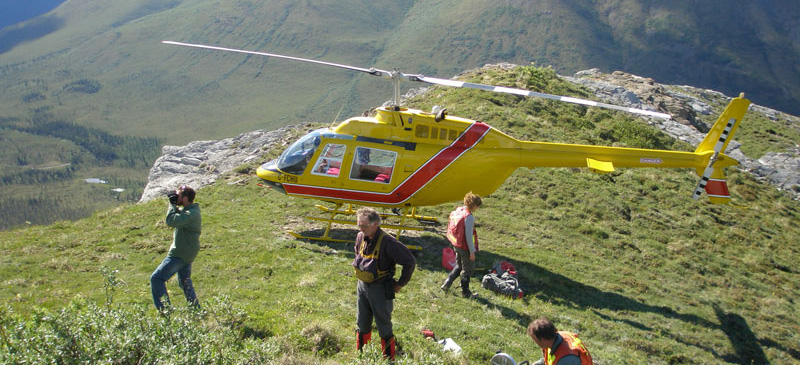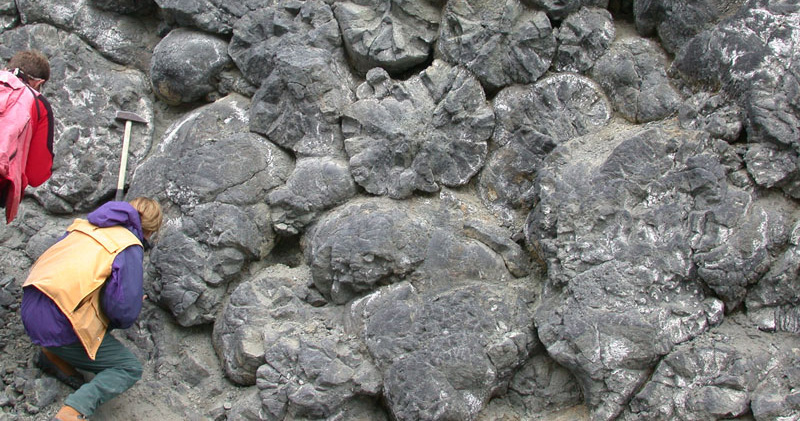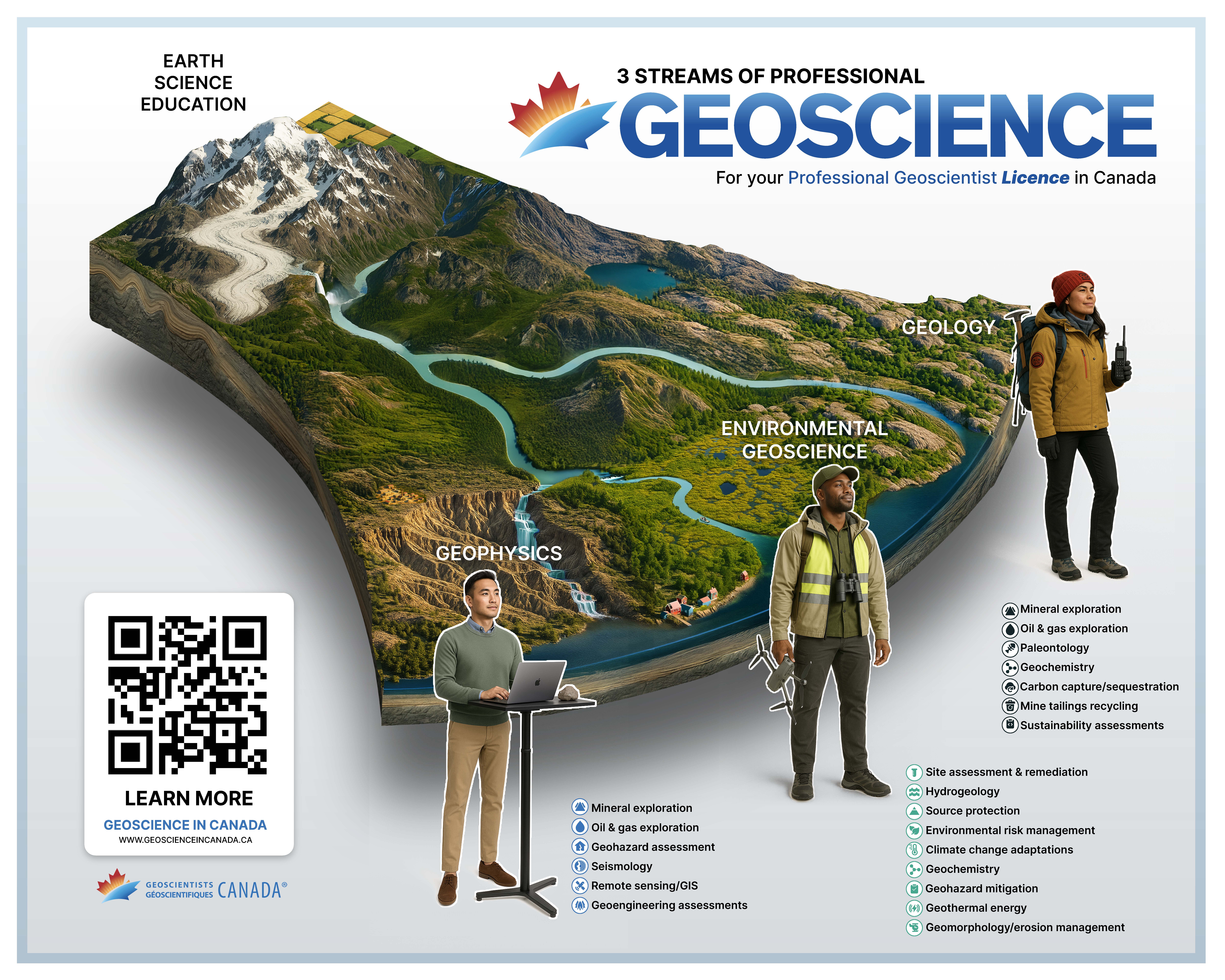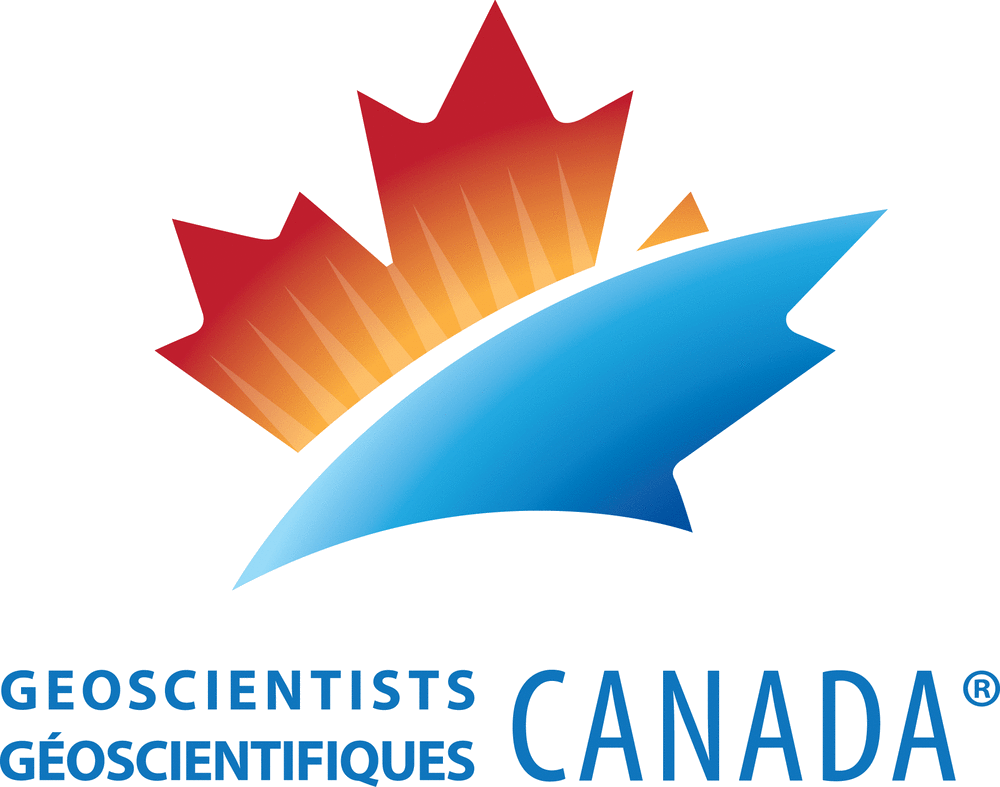Geoscience in Canada
Geology impacts peoples’ lives locally all around the world – including: - where people can safely build homes and live, soil composition and fertility, where key infrastructure can be placed, and the location and availability of all the Earth resources vital for sustainable development – metals, energy, earth materials or water. Canada is no different!
Canada’s size, its geological make up and its geological record spanning 4 billion years have all contributed to our rich resources of naturally-occurring Earth materials – base and precious metals, diamonds, industrial minerals, uranium, oil and gas and water (both ground and surface) – making it a leading global resource-based economy.
In addition to the importance of resources, Canada’s vast continental landmass – bordering on three oceans, its northern and arctic climate, its natural heritage and the needs of its communities – large and small, urban, rural and remote – all pose geoscientific challenges.
This demands a high reliance by Canadians on the knowledge, expertise and talents of skilled geoscientists.


Geoscientists in Canada work in many different sectors. We work in industry for resources corporations; for all different levels of government (for example - geological surveys, government agencies, municipalities); in academia (teaching and research) and as expert consultants of many types. We also work in diverse settings such as at banks, in forensics and at museums and wilderness parks. It is estimated about 20,000 geoscientists work in Canada.
Geoscience and Canada – Understanding our Earth: The vital role of Canada’s Geoscientists is a very useful booklet to examine for a more complete overview of geoscience in Canada today.
Because of Canada‘s high reliance on the knowledge and skills of geoscientists, geoscience is considered a professional activity and it is regulated. This means professional registration, licensure, and the public accountability of all geoscientists as individuals.
Regulatory Bodies
Presently there are 10 geoscience regulatory bodies (regulators) in Canada: - Alberta, British Columbia, Manitoba, New Brunswick, Newfoundland and Labrador, Nova Scotia, Ontario, Quebec and Saskatchewan; and Northwest Territories and Nunavut which is served by one regulator. Geoscience is not currently regulated in Prince Edward Island or Yukon.
At seven of the regulators both engineers and geoscientists are regulated together under the same act. While three - Ontario, Quebec and Nova Scotia - regulate geoscientists only, under specific geoscientists acts.
You can explore the Regulator Map here. It provides summary information about geoscience regulation in each province and territory and includes a direct link to each regulator.
Geoscience Practice Areas
Geoscientists in Canada work across the full Earth science spectrum. For convenience, our profession recognizes three primary disciplines: - geology; environmental geoscience and geophysics, reflecting that our work all falls broadly into one of these three primary sub-disciplines.
Similarly, Bachelor of Science degree programs in Earth science at universities in Canada typically offer three different focus areas or academic “streams”. One focusing on pure geology, another on environmental geoscience (which takes in geochemistry, hydrogeology and geohazards) and a third focused on geophysics. The knowledge requirements or academic training (course requirements) set out by the profession for registration assessment are similarly divided into the same three “steams”.
All applicants for registration are assessed either through a geology stream; an environmental geoscience stream or a geophysics stream.
Important Note
For licensure purposes in Canada, geoscientists are assessed under one of three geoscience streams, however this does not mean once you are assessed and accepted as a professional geoscientist (P.Geo.), you can only work in the practice area corresponding to the stream in which you were assessed. Once you are registered as a P.Geo. anywhere in Canada you are bound by a Code of Ethics to know your own limitations and to guide yourself to only take on work in those areas of geoscience in which you are competent.
Some Testimonials
Eilidh Lewis, M.Sc., P.Geo.
Eilidh Lewis, M.Sc., P.Geo. is interviewed by Keith Johnson, BA, MBA on her experience when coming to Canada and becoming a P.Geo.
The views and opinions expressed in these videos are those of the interviewee. They do not necessarily reflect the opinions or views of Geoscientists Canada or its members.
The Job Market
Job market studies specific to the work of geoscientists in Canada which cover all areas of geoscience employment together are not typically undertaken in Canada. Instead periodic sector-specific studies examine employment of geoscientists together with other professions and skills for that sector. These studies can provide very helpful information. A good example is the 2016 study undertaken by the Prospectors and Developers Association of Canada in conjunction with MiHr (Mining Industry Human Resources Council) entitled Canadian Mineral Exploration - HR Outlook (external link).
Many of the Canadian geoscience regulators provide geoscience salary survey information. These surveys provide information on topics such as Salary by Degree Type, Salary by Discipline, Salary by Job Position, and Salary by Sector of Employment. To access the geoscience regulator salary surveys, visit the Regulator Map on this website, select a regulator jurisdiction, and click on the regulator's web address. Search for "Salary Survey" on the regulator's website.
Infographic - 3 Streams of Professional Geoscience for your Professional Geoscientist Licence in Canada.


